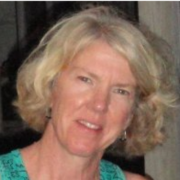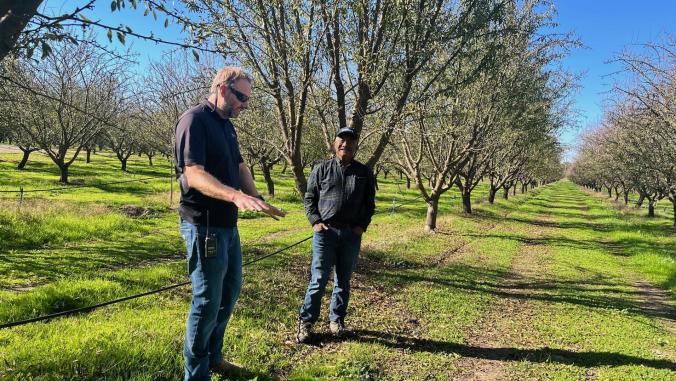Open data movement grows, pushing cities toward resilience
By opening up government data on transportation, buildings, infrastructure and air quality to citizen coders, cities and regions are solving problems.

In San Francisco, tech-savvy residents and the emergency services department created SF 72, an open-source portal of data and apps to help people cope with emergencies for 72 hours — the critical hours before responders can arrive.
In Chicago, a well-developed City of Chicago Data Portal lists hundreds of sets of data — and scores of citizen-developed apps — that help residents with everything from avoiding landlords who are building code scofflaws to advising on the best transportation routes at various times of day.
In Cairo, Egypt, citizen coders working with the Open Data Institute are looking at data on electricity usage patterns in hopes of devising a program to eliminate electricity outages.
And citizens of Burkina Faso, also working with ODI, have developed its Open Data Burkina Faso portal to provide apps and ready information on everything from education to public security.
The open data movement has spawned hundreds of services that make cities and governments work better and empowered citizens to get involved with city government rather than become irked at lack of services. And, the movement has spawned local startup industries among coding entrepreneurs.
McKinsey & Co. estimates that open data is a $3 trillion a year opportunity in economic value created by cities and businesses using government data to produce services.
“Better data will help people build better cities," said Gavin Starks, the CEO of the Open Data Insitute, which has been a global catalyst in working with governments to open up data sets and make them machine readable to allow entrepreneural coders to create services.
By opening data to public access and investing in structuring data so it is machine readable, many cities and state or federal government agencies have cleaned up some inefficiency and gotten free advice or even solutions for nagging municipal problems.

"We’ve seen a lot of governments launch open data platforms over recent years," he added. Those cities are "realizing that they have little to lose and much to gain by letting citizens, startups and developers analyse and link the datasets to reveal new insights and opportunities."
[Gavin Starks will be speaking at VERGE in San Jose, California, October 26 to 29.]
For instance, Plume Labs, a Paris-based startup launched its commercial business this month, marketing a mobile app that takes government air quality data and simplifies it to give users a finger-swipe quick word on whether air quality at a given moment in a given city is healthy enough for exercise or for taking children to the park.

London-based startup CityMapper has done a mashup of all kinds of data from London streets to get a commuter from point a to b most efficienty.
[]
Founded by Tim Berners-Lee — the computer scientist often credited with inventing the World Wide Web —and Nigel Shadbolt, the Open Data Institute has established nodes all over the world to assist citizen groups and convince governments to make their data sets available and accessible to the public.
In London, where it started and where open data first got a foothold, a huge open data platform for transportation solutions, Transport API, continues to draw new developers and host new apps; it already has some 1,400 developers and organizations constantly innovating. The portal has changed getting around in London from a sometimes nightmare to a manageable, navigable process.
[]
In the United States, Code for America fulfills a similar role. Founded in the Bay Area cities of Oakalnd and San Francisco, Code for America has now launched open data brigades in a dozen U.S. cities, sending coders to help cities solve problems.
The City of Oakland, California, gained a more efficient budget-making policy, and eased some of the frustration of citizens, by opening up its budget data to a sophisticated group of computer scientists who came up with some better answers.
Open Budget Oakland not only helped the city find ways to save money but it may have prevented protests on budget cuts.
The OpenOakland citizen coding initiative that evolved from that experience has gone on to develop apps for locating blighted properties and their status, for emergency planning, and for helping parents learn about how public schools spend the money alloted to them for educational improvement.
"There is a very clear benefit for a city, as much as reasonable, to be public with its data. It creates an expectation that city government is there to serve people, that it’s willing to be reasonable in working with people and that it’s transparent," said Steve Spiker, one of the founders of OpenOakland.
The benefits are so clear that early initiatives in Oakland and San Francisco morphed into Code for America, a nationwide organization that has helped cities and their citizens all over the United States improve services by encouraging collaboration and urging cities to make their data sets available and machine readable. The founder went on to be a White House technology advisor.
Open data as a challenge
But not every city makes its data open to public access. And various other levels of government at the state and national levels maintain databases or just information that is not accessible because it is not machine readable or standardized.
For instance police department arrest records or schedules of city services such as street paving are the type of records that journalists and data activists have been seeking for years.
Indeed, some of the gains that have been made happened through pressure. The City of San Francisco had data on some 3,000 properties the city determined were vulnerable to a collapse. But it was just sitting on that data, not sharing it even with the residents of the properties in question until reporters learned about the data. Since then, the city has flp flopped and not only made its data accessible but teamed up with residents to create SF 72.
Oakland, likewise, went through some trying times when the city was accused of not being proper stewards of a budget. Oakland's current Mayor Libby Schaaf introduced legislation as a council woman to create an open data initiative. She gained a reputation for being a techno-savvy official and an advocate of citizen and government collaboration and won a highly competitive mayoral race.
"It’s essential that government data is published openly to access, use and share by all — it contains vital insights into the health of the country and of our cities, both highlighting the problems that need to be solved, and providing the raw material to power the solutions," said Starks in an email interview.
"However the quality of the data is extremely important. Too often data is published which isn’t machine readable, has little metadata, and whose frequency is unclear. It is a question of quality rather than quantity."
[]





